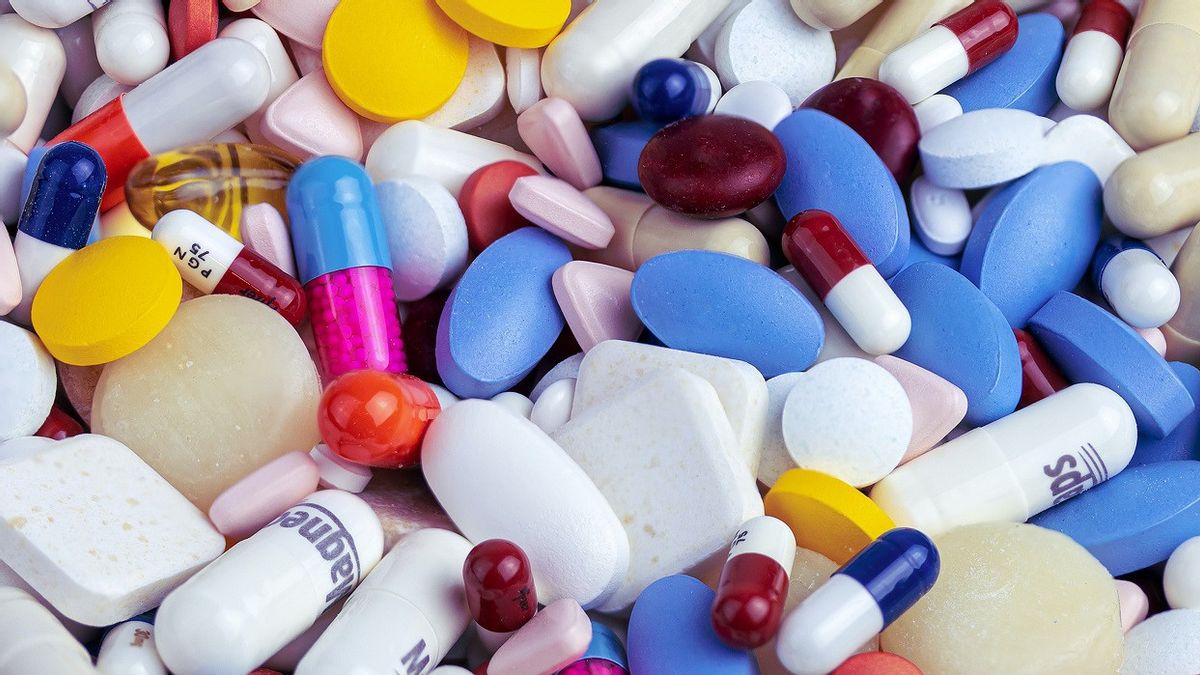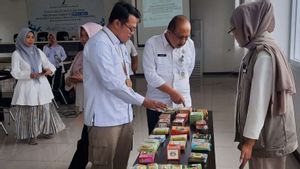JAKARTA - Scientists from the Hebrew University of Jerusalem, Israel announced that they had identified several drugs that could potentially help treat COVID-19.
Prof. Shy Arkin, a biochemist at the Alexander Silberman Institute of Life Science, said in laboratory tests in which cells infected with SARS-CoV-2 were placed together with drugs for two days, nearly 100 percent of the cells were alive despite being infected with the virus.
In contrast, without a pre-existing drug compound, about 50 percent of the cells died, after coming into contact with the virus.
Arkin and his team collected more than 2,800 compounds approved for use, identifying 18 drugs they felt could be effective. In unpublished work, the researchers were able to demonstrate several compounds that exhibit extraordinary potency against all viruses in in vitro experiments.
Two of these are Darapladib, used for the treatment of atherosclerosis, and Flumatinib, used for the treatment of certain blood cancers. Arkin said he was hesitant to share the names of any drugs, adding that he could not recommend them until they were in proper clinical trials.
The team focused on drug reuse that could potentially accelerate future regulatory steps. Because these drugs have been used for other indications, where their side effects and toxicity, for example, are known and approved.
The way the drug works is by inhibiting two targets in the virus: protein E (envelope) and protein 3a. Protein E is the most conserved viral protein. For example, while the spike proteins of SARS-CoV-2 and SARS-CoV-1 (2003 virus) are only about 75 percent identical, their E protein is about 95 percent the same.
"This means the drugs are likely to remain effective even as the virus mutates," Arkin told The Jerusalem Post.
In previous studies, proteins E and 3a were shown to be important for viral infectivity. Arkin's team was among the first to study protein E from the first SARS coronavirus in 2004.
As part of the research that Arkin's team has been doing for more than two decades, they identified that protein E is an ion channel, a type of protein family expressed by almost all living cells that due to its structure has served as an excellent and frequent target for pharmaceutical point interventions. , including for cystic fibrosis, epilepsy, arrhythmias, neurodegenerative diseases, hypertension, angina and more, the report said.
Arkin said it was important to have a 'large arsenal' of drugs for the fight against SARS-CoV-2.
"We should never be in a situation where in our arsenal, we only have one firearm. If we only have one and we rely solely on it, and then there comes a time when it fails, we will be in a very precarious situation."
Arkin believes his team is ready for both in vitro and in vivo studies, and he is looking for pharmaceutical partners to help carry out these trials.
Citing Gilead's success in obtaining United States Food and Drug Administration (FDA) approval for Remdesivir in the short period of time at the start of the pandemic, Arkin said he was optimistic that at least some of these compounds could be approved for use against COVID-19.
The English, Chinese, Japanese, Arabic, and French versions are automatically generated by the AI. So there may still be inaccuracies in translating, please always see Indonesian as our main language. (system supported by DigitalSiber.id)













